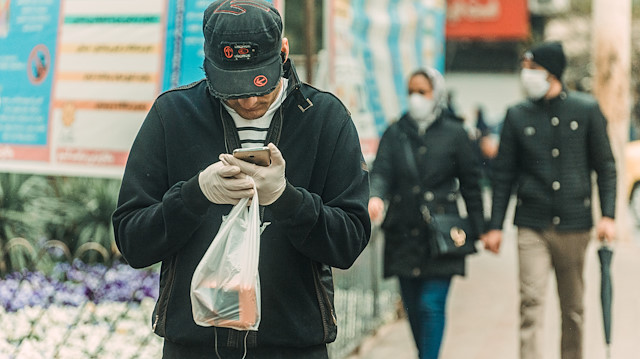
Iran lifts coronavirus restrictions after short lockdown
Spurious liquor kills 700 people in Iran, as wrong notions fly that alcohol improves immunity to fight COVID-19
A wrong notion that liquor improves immunity to fight the novel coronavirus or COVID-19 has sent Iran’s already stressed health care system into a tizzy.
Battling hard to stem the spread of the COVID-19, which has devoured nearly 4500 lives, the country is also coming to grips with a spurious liquor problem that has killed more than 700 people.
Recently a viral video showed that a five-year-old child recuperating in an Iranian hospital had lost vision after his parents forced him to drink highly concentrated liquor to get protection from the pandemic.
Sources told Anadolu Agency that the alarming trend of consuming alcohol to battle the virus has been reported in at least 26 provinces.
The maximum cases have been reported in the capital Tehran, the southwestern province of Khuzestan, the northern province of Mazandaran, northwestern provinces of Ardabil and Azerbaijan, and the western province of Lorestan nestled in the Zagros Mountains.
A few cases have been reported from the southern historical city of Shiraz as well.
“A bizarre belief is borne out of ignorance and dogma that consumption of alcohol prevents COVID-19 infection has triggered this new crisis,” Dr. Sina Dehgahi, a Tehran-based medical practitioner told Anadolu Agency. He blamed social media for spreading such fallacies.
Citing a story published in a British tabloid in February, some social media accounts promoted the belief that some people defeated the virus, by consuming alcohol.
“The medical advisories that alcohol-based sanitizers can prevent infection have mainly shaped this wrong perception that its consumption could also ward off the virus,” said Dr. Dehgahi.
He said there is a high probability that the consumption of liquor could cause blindness, liver and kidney ailments or even death.
While alcohol is banned in Iran, which can lead to prison terms or lashes, some people flout the law and produce it at home using methanol, according to reliable sources.
“It is not an organized industry. Some produce it for themselves while others see it as an opportunity to make quick bucks in troubled times,” said a source privy to these developments.
-Alcohol consumption surged after pandemic outbreak
Despite the ban, the sale and consumption of bootleg alcohol were going on clandestinely in Iran for over many years. After the outbreak of the pandemic, its production and consumption surged further.
“This isn’t a new phenomenon. But the surge this time is related to the rumor on social media that drinking alcohol prevents contracting the virus,” said the source.
More worrying is the fact that one-seventh of those who died from poisonous liquor consumption in recent weeks are women aged from 14-78, showing that the trend is prevalent across genders and age groups, says country’s forensic department.
According to reports, many people involved in the production and sale of bootleg alcohol have been taken into custody by police in Tehran, Khuzestan, and Lorestan.
Acknowledging the problem, Iran’s Judiciary Spokesman Gholam Hossein Esmaili said the numbers related to deaths from bootleg alcohol have been very high and beyond expectations. Speaking to a local news agency, he said several accused have been arrested and efforts are underway to trace others.
Meanwhile, the outrage over this “racket” in the middle of a health crisis is mounting in Iran.
“All those involved in this racket, whether organized or unorganized, must be booked under the law and stringent punishment must be given to them,” said Alireza Haideri, an activist and an artist.
“We have not yet overcome the COVID-19 crisis and here we are faced with another serious crisis, “he said.
The healthcare officials said they were witnessing hopeful signs over the past week, with new COVID-19 infections coming down and many patients recovering.
“The curve has flattened and the worst seems to be over,” said Dr. Ali Najafi, a medic and an analyst. “But it is still too early to celebrate. The fight has not ended yet,” he added.
#Coronavirus
#COVID-19
#Iran


